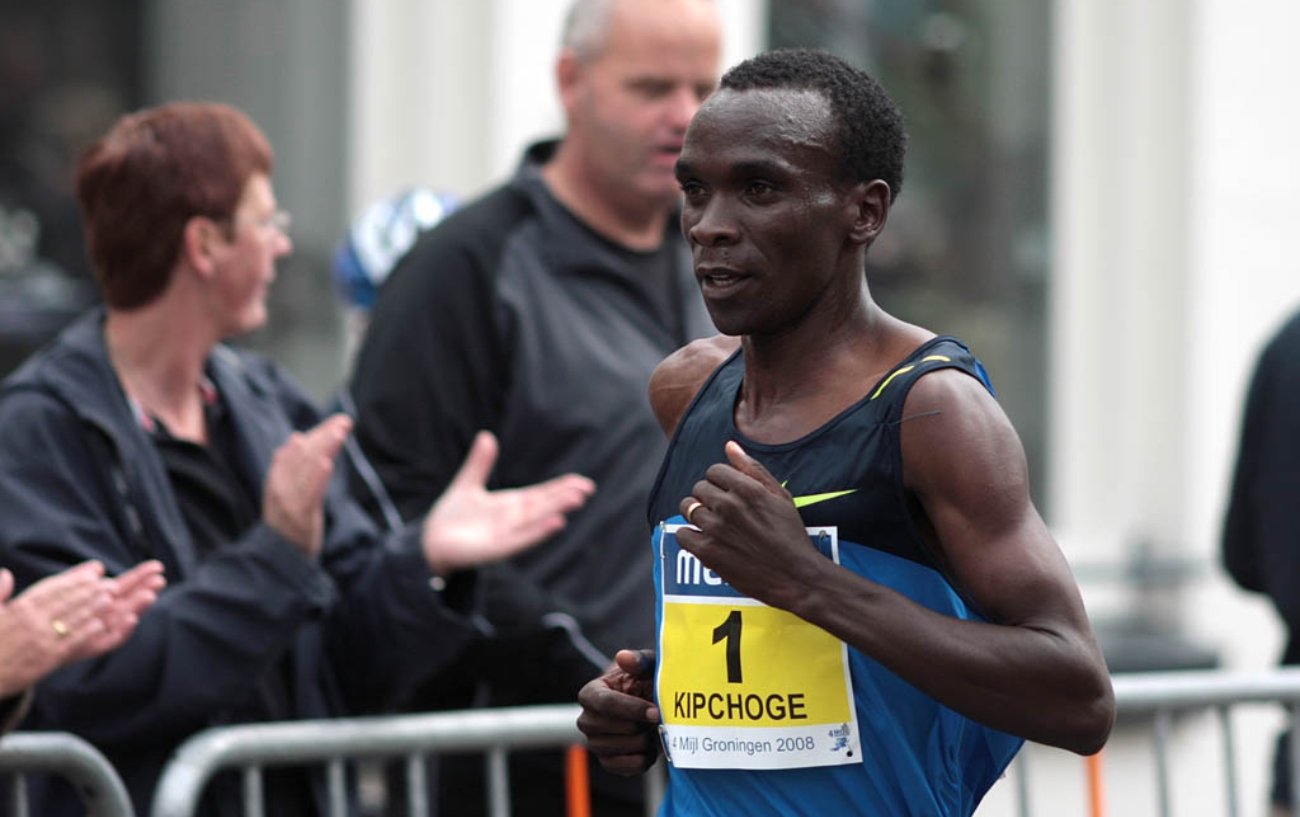
This article discusses the term gaslighting in a lighthearted and humorous way. However, it can be a serious and sensitive topic. If you or anyone you know is experiencing gaslighting, you can find resources at the end of this article.
At first glance, Eliud Kipchoge and David Goggins might not have that much in common.
Other than the fact that they’re both pretty fit people, they’re quite different.
On one hand, we’ve got Kipchoge, a humble and soft-spoken marathon Yoda with wisdom beyond his years. On the other hand, we’ve got David Goggins, who is arguably one of the most polarizing and outspoken people in the running and fitness world.

Now, putting their wildly different personalities aside, at the core of both of their accomplishments and pursuits, they share one thing in common: the secret to their mental toughness.
As a professional athlete myself, I know how crucial of a role mental toughness plays in being able to get the most out of yourself physically. I’ve tried all the tricks in the book, and believe it or not, I find myself (and many of my peers) falling back to the same one every time, the same one Kipchoge and Goggins use.
When it comes down to it, we’re all out here self-gaslighting.
I know how crazy that might seem, but throughout this article, I’ll explain how the root of our mental tricks to push our bodies to the limit is essentially a form of self-gaslighting.

What is Gaslighting?
Before we get too far, what exactly is gaslighting?
“Gaslighting is the act of distorting the truth in a way that’s intended to make another person accept the deception due to doubting their own memory, experience, reality, or sanity.”
The term gaslighting is often used in the context of emotionally abusive relationships, such as romantic relationships or with family members. However, it is also becoming more commonly used in reference to manipulative deception in other contexts, such as by politicians.
Self-gaslighting is exactly what it sounds like and is when a person denies their own reality or version of events.
So, how do we, as runners, gaslight ourselves?

Positive Self-Talk
We’ve all heard of the benefits of positive self-talk, especially as athletes.
Although the research on whether positive self-talk actually impacts performance is mixed, many athletes swear by it.
Coming up with short phrases or mantras to tell yourself when the going gets tough is something many endurance athletes, myself included, do.
Here’s a list of my go-to sayings when I’m pushing my body to the limit:
- “It doesn’t hurt that bad.”
- “You can do two of anything.”
- “You’re fine. This is fun.”
- “This isn’t the worst you’ve ever felt.”
At first glance, none of these seem like I’m gaslighting myself, but in reality, that’s exactly what I’m doing.
If I am saying to myself that I feel fine or that it doesn’t actually hurt, meanwhile, I’ve gone into the red or hit a wall, I’m lying to myself, and I know it.
But let me tell you, for some reason, it works. I can always get myself to the place I need to when I say these things to myself.

Eliud Kipchoge Late Race Smile
Kipchoge understands that taking on a marathon at world-record speeds is not just a physical feat but also an extreme mental battle.
To complement his physical preparations, Kipchoge uses a number of mental strategies to help him overcome the challenges that come with marathon running.
One key strategy that is part of his mental training is positive self-talk.
Kipchoge constantly uses positive thoughts and phrases in his mind when his body begins to fight him. He uses phrases to remind himself of his abilities, his resilience, and his ability to push through the pain of a marathon.
He creates an empowering mindset that fuels his performance, however, you can see how some aspects of his positive self-talk could fall under the definition of gaslighting.
Kipchoge is also known for his iconic smile in the late stages of a marathon.
Although we can’t technically say it’s gaslighting, he certainly is portraying a different feeling than his reality.

David Goggins Mixtape Of Haters
David Goggins approach to using gaslighting to enhance his performance is a little more unorthodox (as are many of his training approaches).
Rather than gaslighting himself, Goggins uses his haters gaslighting him as motivation to push his physical limits.
Goggins creates a mixtape of his haters’ comments to fuel his fire.
“I started making these mixtapes with all of these hate messages about people talking it became such a source of fuel that it was amazing because I know why you hate me,” he says.
“You hate me because you’re probably in the bed right now, you’re probably an underachiever, you’re probably somebody who doesn’t want to do anything with your life so I make you question everything about yourself.”
By the sounds of it, not only is he using his haters gaslighting to motivate himself, but he’s also motivating his followers by gaslighting them into thinking that are underperforming.

Will Gaslighting Help You Push Past Your Limits?
The mental strategies that help one runner, may not be as useful to another runner.
For some, positive self-talk or gaslighting may work, while for another runner, visualization might be key.
What’s important is that you try a number of different mental tools and find which ones work best for you.
If you or anyone you know may be in a situation that involves gaslighting, click here to seek assistance.












